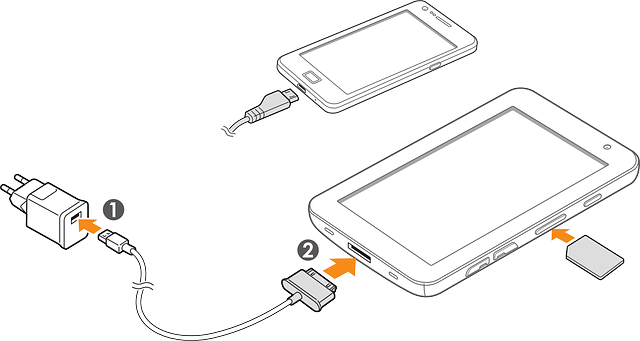Robocalls have become a significant problem in North Carolina, with residents facing unwanted calls from telemarketers, political campaigns, and debt collectors. The Telephone Consumer Protection Act (TCPA) protects consumers from unauthorized robocalls, allowing them to sue for damages. Businesses also face economic strain and reputational damage due to these calls, prompting questions about legal action against robocallers. Local communities are raising awareness, exploring legal avenues, and empowering residents to protect themselves through education, reporting, and consultation with consumer protection attorneys to determine if they can sue for robocalls in North Carolina.
In today’s digital age, robocalls have become a pervasive nuisance, impacting local communities across North Carolina. This article delves into the multifaceted effects of automated phone calls on residents and businesses, exploring legal protections available to North Carolinians, including the potential for seeking compensation through lawsuits. We analyze community responses to robocall scams and present effective strategies to mitigate these unwanted intrusions. Understanding the economic impact on local enterprises is also crucial, highlighting the need for proactive measures to protect both individuals and businesses from robocalls.
What Are Robocalls and How Do They Affect North Carolina Residents?

Robocalls, short for robotic calls, are automated phone calls that use advanced technologies to dial and deliver pre-recorded messages to a large number of recipients simultaneously. While they can serve legitimate business purposes, such as appointment reminders or emergency alerts, robocalls have increasingly become a nuisance for North Carolina residents. Many in the state receive unwanted calls from telemarketers, political campaigns, and debt collectors, often making it difficult to distinguish between genuine communication and fraudulent attempts.
These automated calls can significantly impact local communities by causing frustration, annoyance, and even financial harm. North Carolina residents who feel they have been subjected to excessive or unauthorized robocalls may wonder, “Can I sue for robocalls in North Carolina?” The short answer is yes; several legal avenues exist to hold callers accountable. State laws protect consumers from certain types of automated calls without explicit consent, and violators can face fines and lawsuits. This ensures that residents have a mechanism to defend their privacy and peace of mind against the pervasive issue of robocalls.
Legal Rights and Protections Against Robocalls in North Carolina

In North Carolina, like many other states, there are laws in place to protect residents from unwanted robocalls. The Telephone Consumer Protection Act (TCPA) grants consumers certain legal rights and protections against automated telephone calls, including robocalls. If you’ve received unsolicited robocalls, you have options.
North Carolina residents can take action if they believe their privacy has been invaded by automated telemarketing calls. According to the TCPA, individuals have the right to sue for damages if they experience nuisance or invasion of privacy due to robocalls. This includes the ability to seek monetary compensation for each violation, which can be significant if multiple unauthorized calls are made. If you’re considering legal action against a company making robocalls in North Carolina, it’s advisable to consult with an attorney specializing in consumer protection law to understand your Can I Sue For Robocalls rights and options under the TCPA.
The Economic Impact of Unwanted Robocalls on Local Businesses

Unwanted robocalls have become a ubiquitous nuisance, impacting local businesses across North Carolina and beyond. These automated calls, often marketing or telemarketing in nature, can disrupt operations and harm financial health. Small businesses, in particular, face significant economic burdens due to the time and resources wasted on managing these calls. Employees may spend valuable time on the phone, attempting to navigate or block the relentless robocalls, reducing productivity and increasing operational costs.
Moreover, the constant barrage of unsolicited calls can damage customer relationships. Potential clients might perceive businesses that frequently receive robocalls as unprofessional or intrusive, leading to a loss of trust and business opportunities. In North Carolina, where consumer protection laws are in place, individuals may explore legal avenues if they believe their rights have been violated. The question of “can I sue for robocalls?” gains relevance when businesses incur substantial financial losses and reputational damage due to these unwanted intrusions.
Community Awareness and Action Against Robocall Scams

In response to the increasing prevalence of robocalls, local communities in North Carolina have been taking proactive measures to raise awareness about these scams. Educational initiatives and public forums are being organized to inform residents about identifying and avoiding robocall frauds. These efforts aim to empower citizens with knowledge, enabling them to protect themselves and their neighbors. By sharing best practices and personal experiences, communities are fostering a collective defense against unscrupulous call providers.
Concerned citizens in North Carolina have also explored legal avenues to combat robocalls, including the question of whether one can sue for robocalls. Understanding the rights and options available is a crucial step in holding perpetrators accountable. Local bar associations and consumer protection agencies are providing resources and guidance, empowering individuals to take action against these intrusive and deceptive practices.
Effective Strategies to Reduce and Prevent Robocalls

Robocalls can be a nuisance and have significant impacts on local communities, but there are effective strategies to reduce and prevent them. One key approach is to educate community members about recognizing and reporting robocalls. Using tools like the National Do Not Call Registry and state-specific registries in North Carolina helps filter out unwanted calls. Additionally, adopting privacy settings on phones that block unknown numbers can significantly curb robocall disruptions.
Another powerful method involves engaging with local law enforcement and regulatory bodies to push for stricter regulations against telemarketing fraud. In North Carolina, individuals who feel they’ve been targeted illegally by robocalls may also explore legal avenues, such as consulting a lawyer or filing a complaint with the Federal Trade Commission (FTC). These collective efforts can create a robust defense against robocalls and ensure community members’ peace of mind.






